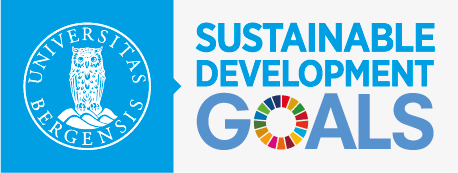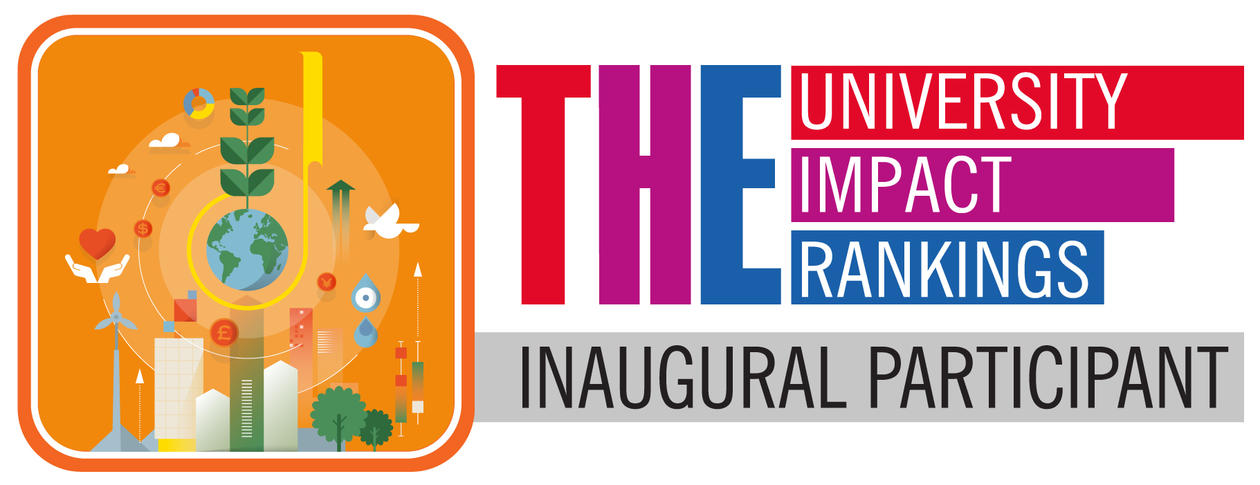UiB secures top 60 global SDG ranking
The University of Bergen has been ranked number 53 across the world in the first THE University Impact Rankings, based on the Sustainable Development Goals, and is the only Norwegian university to be ranked.

Main content
This year shows the launch of Times Higher Education (THE) University Impact Rankings, a pioneering initiative to recognise universities across the world for their social and economic impact, based on the Sustainable Development Goals (SDGs).
Leading on SDGs in Norway
“We are excited to have been ranked the number 53 most SDG-oriented university in the world,” says Vice-Rector for Global Relations, Professor Annelin Eriksen, after receiving the news about the University of Bergen (UiB) ranking in this first ranking of its kind, “and also satisfied that this confirms our standing as a leading SDG-oriented university in the world and the only university in Norway to be ranked.”
In the 2019 THE University Impacts Rankings, universities have been ranked overall, based on their performance on SDG17: Partnerships for the Goals and their three highest-ranked single-SDGs. There is also a ranking of each university's impact in 11 of the 17 SDGs. (See FACTS for UiB's individual SDG rankings.)
“In particular it is good to see our strong performance in the overall ranking, making us among the world's leading SDG-oriented universities,” says Eriksen before adding, “and also to know that this result is based on our strong performance in SDG17, rewarding our long-standing partnerships with universities, in particular in the global south. But also our partnerships with the public and private sector, underlining our strong bonds with the city and the community we are part of.”
First Eco-lighthouse university
As well as a number 59 ranking for SDG17, UiB scores highly on SDG12 where it is number 15 and SDG3 where it is number 39. One of the main reason for the strong showing on SDG3: Good Health and Wellbeing, is the world-leading Centre for International Health, which celebrated its 30th anniversary last autumn.
“We are delighted to be doing well in most of the ranked SDGs with some clear highlights, not the least SDG12: Responsible Consumption and Production,” says the Vice Rector, pointing to the long-term and consistent work done by the university to become climate-neutral by 2030, as pledged by Rector Dag Rune Olsen at the inaugural SDG Conference Bergen.
“We were the first major university in Norway to be certified as Eco-lighthouse, which is Norway's most widely used environmental management system,” says Eriksen, praising the work done by the UiB administration to minimize waste through environmentally friendly waste management. The Vice-Rector also gives mention to SDG16: Peace, Justice and Strong Institutions, where UiB's strong commitment to the Scholars at Risk-programme has been rewarded.
Whereas the overall showing is good and UiB is in the top 200 in 10 out of the 11 SDGs ranked. However, in SDG4: Quality Education, the university is ranked 201-300.
“We were also a little surprised by the weak performance in SDG4, since we have been working systematically on SDGs in our study programmes. However, when looking into the data THE bases its ranking on, we realise that one of the main criteria in ranking on SDG4 is education of primary school teachers, whereas our teachers education is primarily directed towards providing secondary school teachers,” says Eriksen.
Taking leadership on SDGs
The Vice-Rector leads the university's strategic initiative on the 2030 Agenda, SDG Bergen, as well as the university sector's National Committee on the 2030 Agenda. UiB also hosts the annual national SDG Conference Bergen, a conference unique in its kind, bringing together the university sector for critical debate on the sustainable development with politicians, diplomacy, civil society, industry and other societal actors. It is co-organised by UiB with Norway's Ministry of Foreign Affairs and Ministry of Education and the university sector in Norway.
“This ranking underlines the strategic work UiB has been doing over years in order to engage with issues of sustainability, sustainable development and the SDGs in our research and education. It also encourages us to continue this work as well as strengthening our efforts to make the university climate-neutral by 2030, in accordance with the Global Goals,” says Vice-Rector Annelin Eriksen.
In October 2018, UiB was awarded Hub status for SDG14: Life Below Water by United Nations Academic Impact (UNAI) and in November UiB was made SDG14 Cluster leader for the International Association of Universities (IAU). However, SDG14 was not one of the SDGs ranked in the inaugural THE University Impact Rankings.



